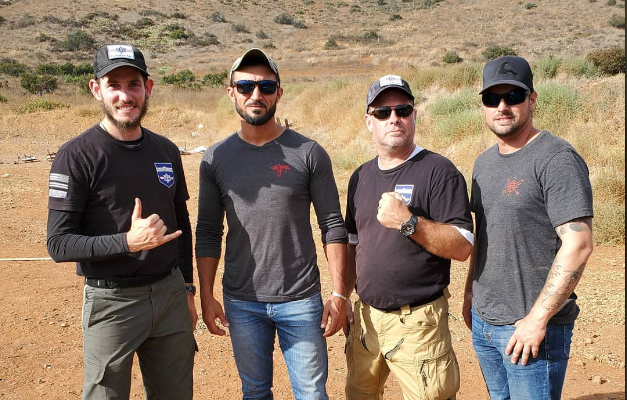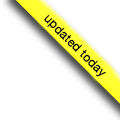
United with Israel

Magen Am, or “Nation’s Shield,” steps up to protect the Los Angeles Jewish community when the going gets tough.
By Joseph Wolkin, United with Israel
Throughout the past two weeks, protests and riots have taken over the streets of Los Angeles. From Sunset Boulevard to Hollywood Boulevard, people were tearing apart businesses, including many owned by Jewish citizens.
While the Black Lives Matter protests were mostly peaceful, thousands of people used it as an excuse for looting. Shocking scenes took over social media, with many synagogues and Jewish establishments having no protection.
That changed thanks to Magen Am, which translates to “Nation’s Shield.” The security organization is “predicated on the strength of teamwork and fueled by the dedication and commitment of our members,” and that was no exception during the riots last week.
In conversation with United with Israel, Rabbi Yossi Eilfort, a Mixed Martial Arts fighter and director of Magen Am, discussed his organization’s mission and why it’s especially needed in today’s climate.
How did Magen Am first start?
“Magen Am first started when a then-stranger reached out and asked if I could help write a program to begin teaching self-defense to rabbis. Over time, we bridged the gap from self-defense to security, and just continued striving to improve.”
Why is it so important for Magen Am to provide enhanced security?
“Mumbai, Pittsburgh, Poway, Monsey… I think it’s obvious that this needs to happen for the Jewish community, and it must be an internal effort.”
How many volunteers does Magen Am have?
“Not enough.”
Last week, throughout the LA riots, Magen Am went above and beyond. What efforts did you make throughout the week?
“It was really incredible to see our teams step up over the course of the protesting and riots. Our programming has been designed around in-place security and at the shuls. While our licensing, and much of our training, is equally applicable to both scenarios, there was a lot of work from an organizational standpoint to enable us to begin responsibly carrying out a patrol/response program.
“From working out the best methods to keep in accordance with regulations to logistically getting teams out and shifts covered. Thankfully, the riots were heaviest in the beginning and quickly quieted down.What changed for you from the start to the end of the week as the riots intensified?
“Well, we got more tired. But we also began spending more time supporting the Los Angeles Police Department and National Guard as things relaxed. There were fewer people on the street, but more officers, so we would break up our shifts bringing them cold drinks. Working in line with their recommendations is very important to us.”
You offer training for houses of worship, Chabad shluchim (emissaries) and other important programs. What is the response of people who participate in these programs?
“It’s often difficult to get people to sign up, but once they do, almost everybody enjoys training. Most people don’t realize that there are whole worlds of information in the different fields of training. The biggest thing we teach is communication — probably why we were able to deter and deescalate every call that came in this week — which really can benefit everybody.”
How important is it for synagogues to have this type of training?
“Personally, I think it is critically important. There are many wonderful training organizations out there. It’s important to look at the whole picture: Preparation/planning, different types of emergency situations, and stages of recovery.
“We learned from the Poway attack how important it is to have a plan for security, but also mental health treatment, babysitting, meal trains, insurance… simple activities become incredibly difficult, and it takes the broader community to help with the recovery. For us, the licensing and legal ability to act as security is a most critical piece that cannot be overlooked.”
Is the organization living up to its name?
“I think it’s quite simple. We are there to offer layered protection, made up of the community (nation), but we are not just a ‘guard.’ A shield requires the one seeking defense to hold it up. We’ve provided the community with an ability to protect itself.”
国家的盾牌”玛根·阿姆(Magen Am)站出来保护洛杉矶犹太人社区。
作者:约瑟夫·沃尔金,联合以色列
在过去的两周里,抗议和暴乱已经席卷了洛杉矶的街道。从日落大道到好莱坞大道,人们都在拆散企业,其中包括许多由犹太公民拥有的企业。
虽然黑人生命问题抗议活动大多是和平的,但成千上万的人以此为借口进行抢劫。令人震惊的场面占据了社交媒体,许多犹太教堂和犹太机构没有得到保护。
这一切都要归功于Magen Am,它被翻译成“国家的盾牌”。这个安全组织“以团队合作的力量为基础,以我们成员的奉献和承诺为动力”,在上周的骚乱中也不例外。
在与以色列联合会的对话中,混合武术斗士、玛根-阿姆的主管尤西-埃夫特(Yossi Eilfort)拉比讨论了他的组织的使命以及为什么在今天的气候下特别需要它。
我是怎么开始的?
“当一个陌生人伸出手来问我是否能帮忙写一个程序,开始教拉比自卫时,马根第一次开始了。随着时间的推移,我们缩小了从自卫到安全的差距,只是继续努力改进。”
为什么Magen Am提供增强的安全性如此重要?
“孟买、匹兹堡、波威、蒙西……我认为很明显,这需要犹太社区的努力,这必须是一项内部努力。”
我有多少志愿者?
“还不够。”
上周,在整个洛杉矶骚乱期间,马根阿姆的表现是超乎寻常的。你整个星期都做了什么努力?
“看到我们的队伍在抗议和骚乱过程中挺身而出,真是难以置信。我们的程序是围绕就地安全和shuls设计的。虽然我们的许可证和大部分培训同样适用于这两种情况,但从组织的角度来看,我们做了大量工作,使我们能够开始负责任地执行巡逻/响应计划。
“从制定符合法规的最佳方法到从后勤上让团队出动和轮班。谢天谢地,骚乱一开始最严重,很快平息下来。
随着骚乱的加剧,你从一开始到周末都发生了什么变化?
“好吧,我们更累了。但随着形势的缓和,我们也开始花更多的时间支持洛杉矶警察局和国民警卫队。街上的人少了,但警察多了,所以我们会分班给他们送冷饮。按照他们的建议工作对我们非常重要。”
你为敬拜之家、夏巴德什卢基姆(使者)和其他重要的项目提供培训。参加这些项目的人有什么反应?
“通常很难让人报名,但一旦报名,几乎每个人都喜欢训练。大多数人没有意识到,在不同的训练领域,有着全世界的信息。我们教的最大的东西是沟通——也许是我们能够阻止和取消本周所有来电的原因——这真的能让每个人受益。”
对犹太教堂来说,接受这种培训有多重要?
“就我个人而言,我认为这非常重要。那里有很多很棒的培训机构。重要的是要从全局出发:准备/计划、不同类型的紧急情况和恢复阶段。
“我们从鲍威袭击事件中了解到,制定安全计划、心理健康治疗、保姆、餐车、保险……这些简单的活动变得异常困难,需要更广泛的社区帮助恢复。对我们来说,作为安全措施的许可和法律能力是最关键的一点,不容忽视。”
这个组织名副其实吗?
“我觉得很简单。我们在那里提供由社区(国家)组成的分层保护,但我们不仅仅是一个“卫兵”。盾牌需要寻求防御的人来支撑它。我们为社区提供了自我保护的能力。”



